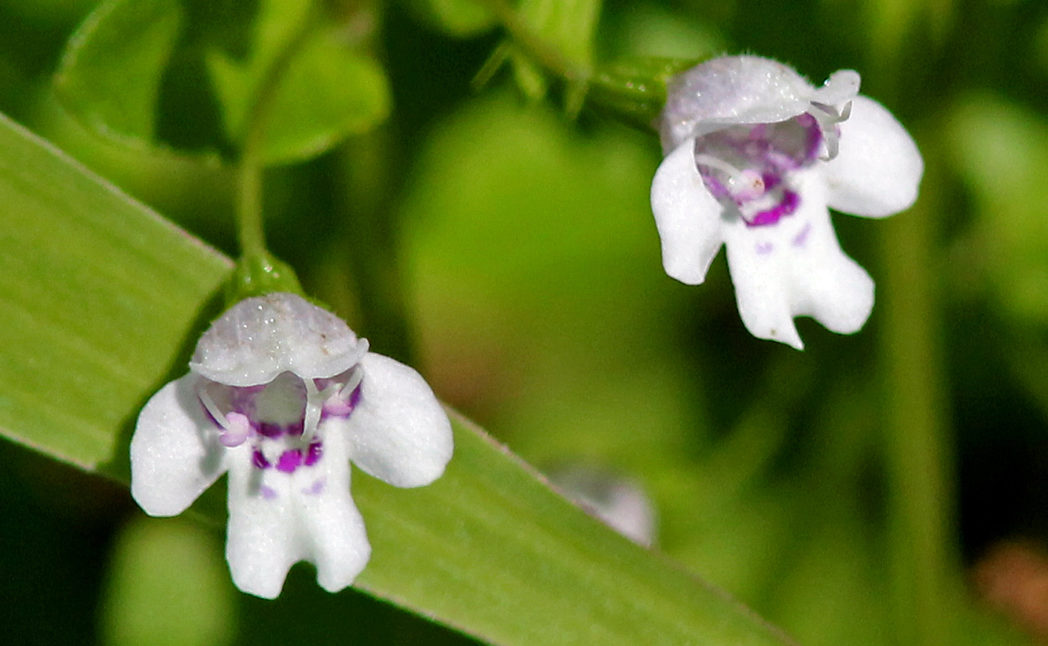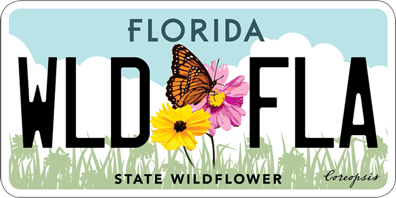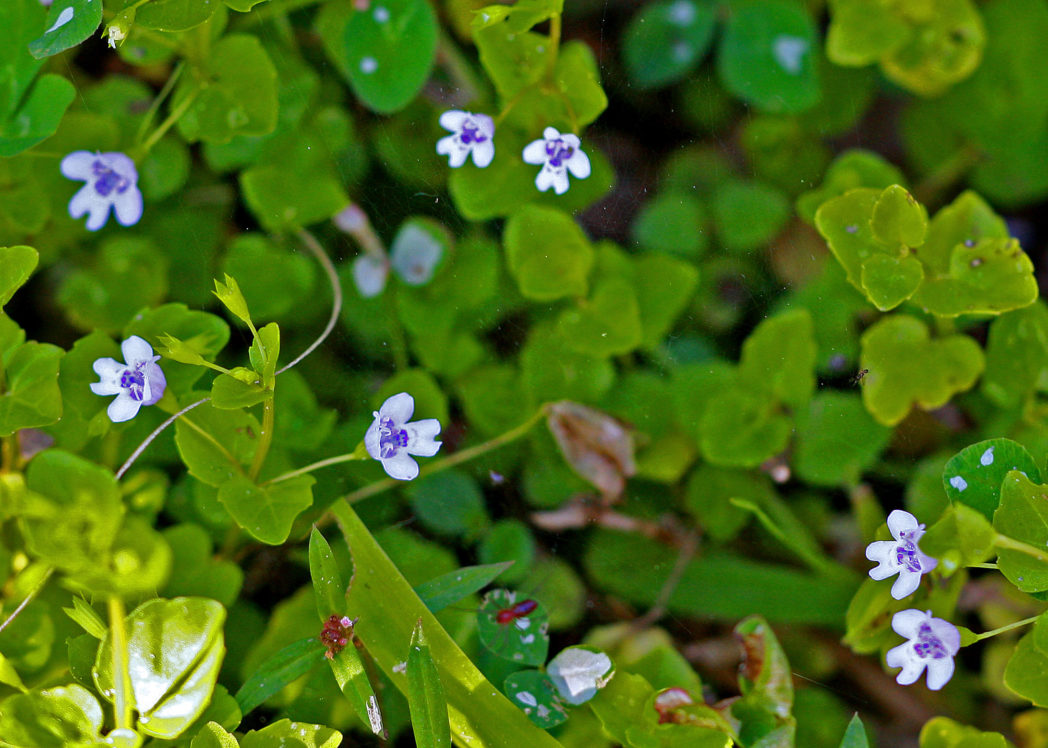Browne’s savory
Pictured above: Browne’s savory (Clinopodium brownei) by Mary Keim. Click on terms for botanical definitions. View post as a PDF.
Also known as St. John’s mint and Creeping Charlie, Browne’s savory (Clinopodium brownei) is a long-lived aquatic perennial wildflower with a sprawling growth habit. It is found along lake edges and in freshwater wetlands, floodplain forests and wet disturbed sites throughout much of the Southeast. Its tiny flowers bloom from spring into fall, attracting a variety of small pollinators. The plant is highly aromatic, particularly when its leaves or stems are crushed. It can be used to make a tea or to add mint flavor to a salad or other dish.

Browne’s savory flowers are tubular, five-lobed and lavender to pinkish-white with dark purple throats. The lobes are fused – three on top, two on the bottom – giving the flower a two-lipped appearance. Leaves are arrow-shaped with wavy margins and toothed apices. They are oppositely arranged on distinct petioles. Stems are square, pubescent and angled. They grow in all directions and root at the nodes, forming large mats.
The genus Clinopodium is from the Greek klino, or “bed” and podion, or “little foot”. The species epithet brownei is in honor of the Irish physician and botanist Patrick Brown, who first described the plant. Browne’s savory was formerly classified as Micromeria brownei.
Family: Lamiaceae (Mint family)
Native range: Central and eastern Panhandle; north and central peninsula; Charlotte, Broward and Miami-Dade counties
To see where natural populations of Browne’s savory have been vouchered, visit www.florida.plantatlas.usf.edu.
Hardiness: 8A–10B
Soil: Moist to wet sandy or loamy soils
Exposure: Full sun to partial shade
Growth habit: 6″ tall and sprawling
Propagation: Division, cuttings
Garden tips: Browne’s savory is a wetland plant and will not survive in areas that dry out. It makes a nice groundcover in the right conditions and will also do well in a container or hanging basket.
Browne’s savory plants are often available at nurseries that specialize in native plants.Visit PlantRealFlorida.org to find a native nursery in your area.

